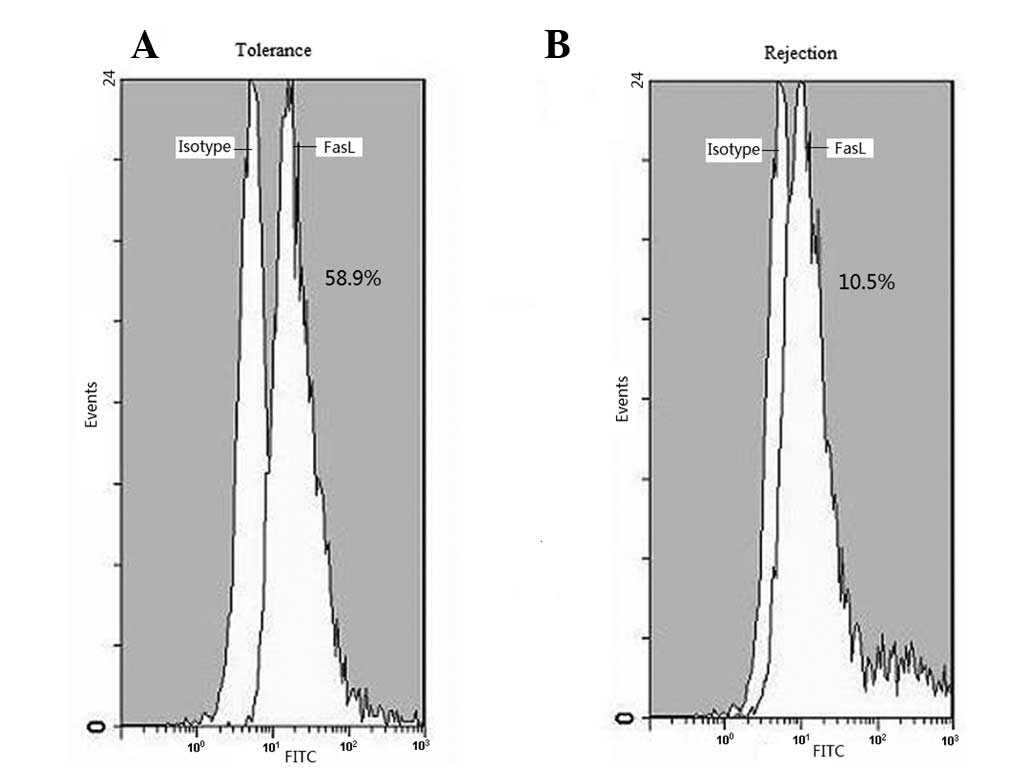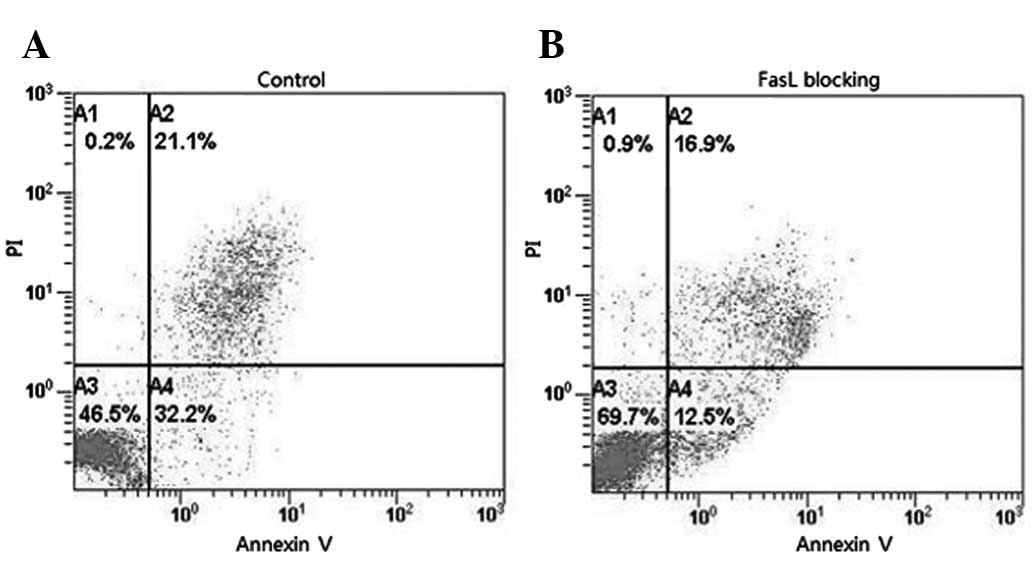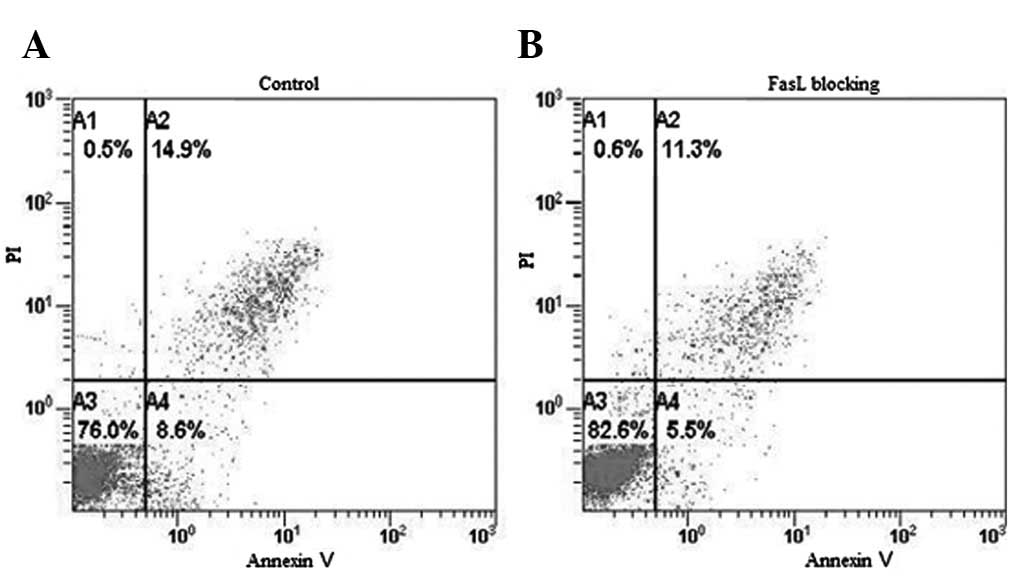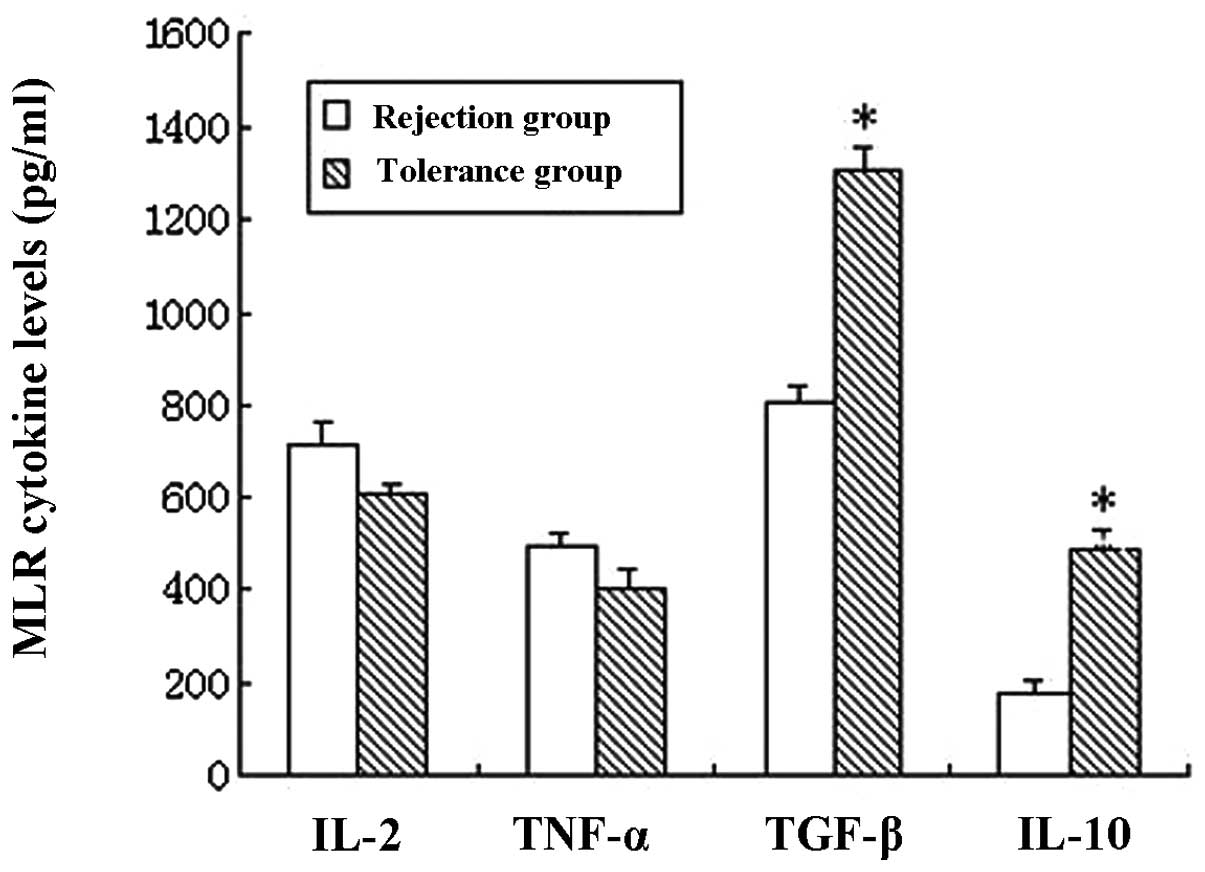|
1
|
Orlando G, Soker S and Wood K: Operational
tolerance after liver transplantation. J Hepatol. 50:1247–1257.
2009. View Article : Google Scholar
|
|
2
|
Zhong R, He G, Sakai Y, Li XC, Garcia B,
Wall W, Duff J, Stiller C and Grant D: Combined small bowel and
liver transplantation in the rat: possible role of the liver in
preventing intestinal allograft rejection. Transplantation.
52:550–552. 1991. View Article : Google Scholar : PubMed/NCBI
|
|
3
|
Wang C, Sun J, Wang L, Li L, Horvat M and
Sheil R: Combined liver and pancreas transplantation induces
pancreas allograft tolerance. Transplant Proc. 29:1145–1146. 1997.
View Article : Google Scholar : PubMed/NCBI
|
|
4
|
Sarnacki S, Révillon Y, Cerf-Bensussan N,
Calise D, Goulet O and Brousse N: Long-term small-bowel graft
survival induced by a spontaneously tolerated liver allograft in
inbred rat strains. Transplantation. 54:383–385. 1992. View Article : Google Scholar : PubMed/NCBI
|
|
5
|
Bumgardner GL and Orosz CG: Unusual
patterns of alloimmunity evoked by allogeneic liver parenchymal
cells. Immunol Rev. 174:260–279. 2000. View Article : Google Scholar : PubMed/NCBI
|
|
6
|
Bumgardner GL, Heininger M, Li J, Xia D,
Parker-Thornburg J, Ferguson RM and Orosz CG: A functional model of
hepatocyte transplantation for in vivo immunologic studies.
Transplantation. 65:53–61. 1998. View Article : Google Scholar : PubMed/NCBI
|
|
7
|
Tiegs G and Lohse AW: Immune tolerance:
what is unique about the liver. J Autoimmun. 34:1–6. 2010.
View Article : Google Scholar : PubMed/NCBI
|
|
8
|
Winau F, Hegasy G, Weiskirchen R, Weber S,
Cassan C, Sieling PA, Modlin RL, Liblau RS, Gressner AM and
Kaufmann SH: Ito cells are liver-resident antigen-presenting cells
for activating T cell responses. Immunity. 26:117–129. 2007.
View Article : Google Scholar : PubMed/NCBI
|
|
9
|
Yu MC, Chen CH, Liang X, Wang L, Gandhi
CR, Fung JJ, Lu L and Qian S: Inhibition of T cell responses by
hepatic stellate cells via B7-H1-mediated T-cell apoptosis in mice.
Hepatology. 40:1312–1321. 2004. View Article : Google Scholar : PubMed/NCBI
|
|
10
|
Chen CH, Kuo LM, Chang Y, Wu W, Goldbach
C, Ross MA, Stolz DB, Chen L, Fung JJ, Lu L and Qian S: In vivo
immune modulatory activity of hepatic stellate cells in mice.
Hepatology. 44:1171–1181. 2006. View Article : Google Scholar : PubMed/NCBI
|
|
11
|
Chen CH, Shu KH, Su YH, Tang KY, Cheng CH,
Wu MJ, Yu TM, Chuang YW and Hu C: Cotransplantation of hepatic
stellate cells attenuates the severity of graft-versus-host
disease. Transplant Proc. 42:971–975. 2010. View Article : Google Scholar : PubMed/NCBI
|
|
12
|
Kamada N: The immunology of experimental
liver transplantation in the rat. Immunology. 55:369–389.
1985.PubMed/NCBI
|
|
13
|
Kamada N and Calne RY: Orthotopic liver
transplantation in the rat. Technique using cuff for portal vein
anastomosis and biliary drainage. Transplantation. 28:47–50. 1979.
View Article : Google Scholar : PubMed/NCBI
|
|
14
|
Niki T, Pekny M, Hellemans K, Bleser PD,
Berg KV, Vaeyens F, Quartier E, Schuit F and Geerts A: Class VI
intermediate filament protein nestin is induced during activation
of rat hepatic stellate cells. Hepatology. 29:520–527. 1999.
View Article : Google Scholar : PubMed/NCBI
|
|
15
|
Iredale JP, Benyon RC, Pickering J,
McCullen M, Northrop M, Pawley S, Hovell C and Arthur MJ:
Mechanisms of spontaneous resolution of rat liver fibrosis hepatic
stellate cell apoptosis and reduced hepatic expression of
metalloproteinase inhibitors. J Clin Invest. 102:538–549. 1998.
View Article : Google Scholar
|
|
16
|
Lang A, Schoonhoven R, Tuvia S, Brenner DA
and Rippe RA: Nuclear factor kappaB in proliferation, activation,
and apoptosis in rat hepatic stellate cells. J Hepatol. 33:49–58.
2000. View Article : Google Scholar : PubMed/NCBI
|
|
17
|
Liu C, Gaça MD, Swenson ES, Vellucci VF,
Reiss M and Wells RG: Smads 2 and 3 are differentially activated by
transforming growth factor-beta (TGF-beta) in quiescent and
activated hepatic stellate cells. Constitutive nuclear localization
of Smads in activated cells is TGF-beta-independent. J Biol Chem.
278:11721–11728. 2003. View Article : Google Scholar
|
|
18
|
Qian S, Lu L, Fu F, Li Y, Li W, Starzl TE,
Fung JJ and Thomson AW: Apoptosis within spontaneonsly accepted
mouse liver allografts: evidence for deletion of cytotoxic T cells
and implications for tolerance induction. J Immunol. 158:4654–4661.
1997.
|
|
19
|
Griffith TS, Brunner T, Fletcher SM, Green
DR and Ferguson TA: Fas ligand-induced apoptosis as a mechanism of
immune privilege. Science. 270:1189–1192. 1995. View Article : Google Scholar : PubMed/NCBI
|
|
20
|
Garnier H, Clot JP, Bertrand M, Camplez P,
Kunlin A, Gorin JP, Le Goaziou F, Lévy R and Cordier G: Liver
transplantation in the pig: surgical approach. C R Acad Sci Hebd
Seances Acad Sci D. 260:5621–5623. 1965.(In French).
|
|
21
|
Kamada N, Brons G and Davies HS: Fully
allogeneic liver grafting in rats induces a state of systemic
nonreactivity to donor transplantation antigens. Transplantation.
29:429–431. 1980. View Article : Google Scholar
|
|
22
|
Qian S, Demetris AJ, Murase N, Rao AS,
Fung JJ and Starzl TE: Murine liver allograft transplantation:
tolerance and donor cell chimerism. Hepatology. 19:916–924. 1994.
View Article : Google Scholar : PubMed/NCBI
|
|
23
|
Fairchild PJ and Waldmann H: Dendritic
cells and prospects for transplantation tolerance. Curr Opin
Immunol. 12:528–535. 2000. View Article : Google Scholar : PubMed/NCBI
|
|
24
|
Sun Z, Wada T, Maemura K, Uchikura K,
Hoshino S, Diehl AM and Klein AS: Hepatic allograft-derived Kupfer
cells regulate T cell response in rats. Liver Transpl. 9:489–497.
2003. View Article : Google Scholar : PubMed/NCBI
|
|
25
|
Limmer A and Knolle PA: Liver sinusoidal
endothelial cells: a new type of organ-resident antigen-presenting
cell. Arch Immunol Ther Exp (Warsz). 49(Suppl 1): S7–S11.
2001.PubMed/NCBI
|
|
26
|
Pan TL, Goto S, Lin YC, Lord R, Chiang KC,
Lai CY, Chen YS, Eng HL, Cheng YF, Tatsuma T, Kitano S, Lin CL and
Chen CL: The fas and fas 1igand pathways in liver allograft
tolerance. Clin Exp Immunol. 118:180–187. 1999. View Article : Google Scholar : PubMed/NCBI
|
|
27
|
Rivero M, Crespo J, Mayorga M, et al:
Involvement of the Fas system in liver allograft rejection. Am J
Gastroenterol. 97:1501–1506. 2002. View Article : Google Scholar : PubMed/NCBI
|
|
28
|
Selenko-Gebauer N, Majdic O, Szekeres A,
Höfler G, Guthann E, Korthäuer U, Zlabinger G, Steinberger P, Pickl
WF, Stockinger H, Knapp W and Stöckl J: B7-H1 (Programmed death-1
ligand) on dendritic cells is involved in the induction and
maintenance of T cell anergy. J Immunol. 170:3637–3644. 2003.
View Article : Google Scholar : PubMed/NCBI
|
|
29
|
Dong H, Strome SE, Salomao DR, Tamura H,
Hirano F, Flies DB, Roche PC, Lu J, Zhu G, Tamada K, Lennon VA,
Celis E and Chen L: Tumor-associated B7-H1 promotes T-cell
apoptosis: a potential mechanism of immune evasion. Nat Med.
8:793–800. 2002. View Article : Google Scholar : PubMed/NCBI
|
|
30
|
Lu L, Qian S, Hershberger PA, Rudert WA,
Lynch DH and Thomson AW: Fas ligand (CD95L) and B7 expression on
dendritic cells provide counterregulatory signals for T cell
survival and proliferation. J Immunol. 158:5676–5684.
1997.PubMed/NCBI
|
|
31
|
Savage CO, Hughes CC, Pepinsky RB, Wallner
BP, Freedman AS and Pober JS: Endothelial cell lymphocyte
function-associated antigen-3 and an unidentified ligand act in
concert to provide costimulation to human peripheral blood CD4+ T
cells. Cell Immunol. 137:150–163. 1991.PubMed/NCBI
|
|
32
|
Chen L: B7-H1 connection of innate and
adoptive immunity against tumor dormancy. Blood. 105:2242–2243.
2005. View Article : Google Scholar
|
|
33
|
Subudhi SK, Alegre ML and Fu YX: The
balance of immune responses: costimulation verse coinhibition. J
Mol Med (Berl). 83:193–202. 2005. View Article : Google Scholar : PubMed/NCBI
|
|
34
|
Fernandes H, Koneru B, Fernandes N, Hameed
M, Cohen MC, Raveche E and Cohen S: Investigation of promoter
polymorphisms in the tumor necrosis factor-alpha and interleukin-10
gene in liver transplant patients. Transplantation. 73:1886–1891.
2002. View Article : Google Scholar : PubMed/NCBI
|
|
35
|
Karrar A, Broomé U, Uzunel M, Qureshi AR
and Sumitran-Holgersson S: Human liver sinusoidal endothelial cells
induce apoptosis in activated T cells: a role in tolerance
induction. Gut. 56:243–252. 2007. View Article : Google Scholar : PubMed/NCBI
|




















